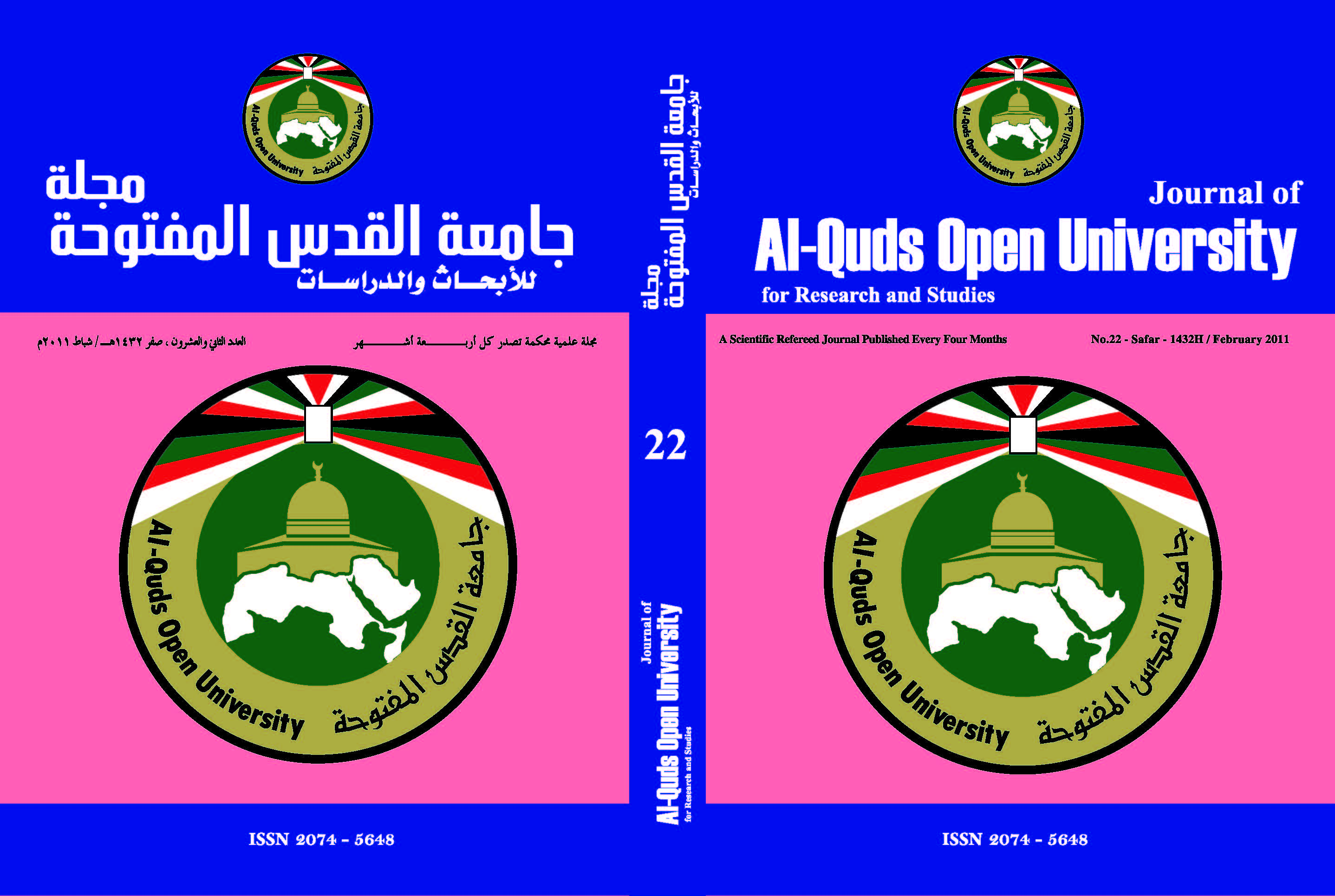Psychometric Characteristics of Medinck’s Remote Associates Test for the Measurement of Creative Thinking among Secondary level Students in Tulkarm, Palestine
Keywords:
Creative thinking, Psychometric characteristics, validity, reliability, achievement, specialization, Medinck’s Remote Associates Test, Tulkarm, Palestine, Secondary level Students, academic achievementAbstract
This study examined the psychometric characteristics (Validity and
Reliability) of Medinck Remote Associates Test for measurement of creative
thinking among Tulkarm secondary students’ in Palestine. For achieving
the objective of the study, the researcher randomly selected a sample which
is consisted of (473) male and female students from (10, 11, and 12) grads
of Tulkarm secondry schools. After translating and applying the test on the
selected sample the study indicated the following findings:
1. The test validity was ensured in different ways: Concurrent validity
by comparison exterme group, constract validity by approximation
discrimination approach, and by internal consistency validity.
2. The coefficients of reliability ensured in different ways: Test re- test
(0.71), internal consistency corrected by Cornbach Alpha formula (0.74),
and split –half by Spearman– Brown formula (0.81).
3. There were statistical significant differences (α = 0.01) between students'
scores on Medinck Remote Associates Test according to the following
variables: Specialization, and achievement level, in favor of the branch
and high level achievement students. But there were no significant
differences between student's scores on test according to the following
variables: Class level , and sex.
Downloads
Published
How to Cite
Issue
Section
License
- The editorial board confirms its commitment to the intellectual property rights
- Researchers also have to commit to the intellectual property rights.
- The research copyrights and publication are owned by the Journal once the researcher is notified about the approval of the paper. The scientific materials published or approved for publishing in the Journal should not be republished unless a written acknowledgment is obtained by the Deanship of Scientific Research.
- Research papers should not be published or republished unless a written acknowledgement is obtained from the Deanship of Scientific Research.
- The researcher has the right to accredit the research to himself, and to place his name on all the copies, editions and volumes published.
- The author has the right to request the accreditation of the published papers to himself.













_2.png)
_.png)
_2.png)
_1.png)
_.png)

